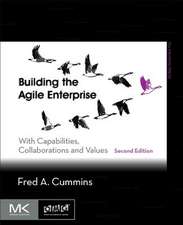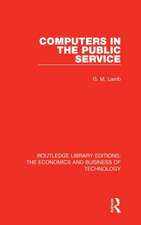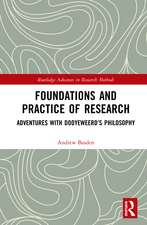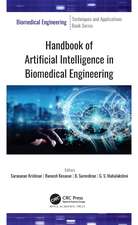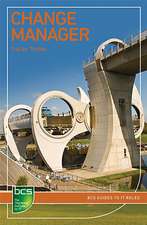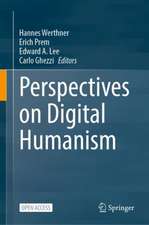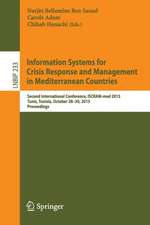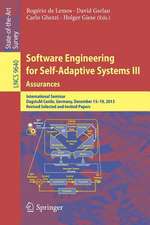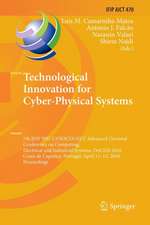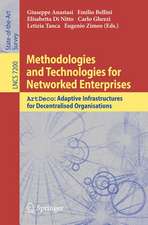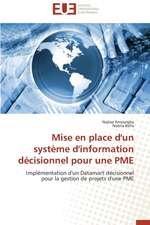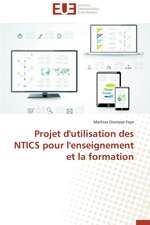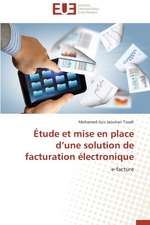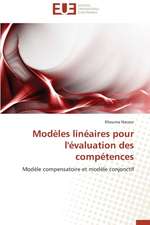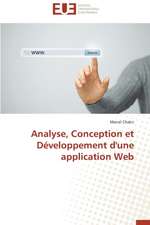Being a Researcher: An Informatics Perspective
Autor Carlo Ghezzien Limba Engleză Paperback – 23 iun 2020
The book systematically discusses what every student should be told when entering academic or industrial research so that they can avoid going through the painful process of learning by personal experience and lots of errors. Rather than being technical, it is philosophical and sometimes even anecdotal, combining factual information and commonly accepted knowledge on research and its methods, while at the same time clearly distinguishing between objective and factual concepts and data, and subjective considerations.
The book is about scientific research in general and as such holds true for any scientific field. However, it is fair to say that the different fields differ in their research cultures and in their eco-systems. The book reflects the author’s experience accumulated over almost 50 years of teaching graduate courses and lecturing in doctoral symposia at Politecnico di Milano, University of Zurich, TU Wien, Peking University, and at various conferences, and of academic research in informatics (also known as computer science).
This book is mainly intended for students who are considering research as a possible career option; for in-progress researchers who have entered doctoral programs; and for junior postdoctoral researchers. It will also appeal to senior researchers involved in mentoring students and junior researchers.
Preț: 195.87 lei
Preț vechi: 244.83 lei
-20% Nou
Puncte Express: 294
Preț estimativ în valută:
37.48€ • 38.99$ • 30.95£
37.48€ • 38.99$ • 30.95£
Carte tipărită la comandă
Livrare economică 15-29 aprilie
Preluare comenzi: 021 569.72.76
Specificații
ISBN-13: 9783030451561
ISBN-10: 3030451569
Pagini: 132
Ilustrații: XVI, 132 p. 14 illus., 1 illus. in color.
Dimensiuni: 155 x 235 x 18 mm
Greutate: 0.22 kg
Ediția:1st ed. 2020
Editura: Springer International Publishing
Colecția Springer
Locul publicării:Cham, Switzerland
ISBN-10: 3030451569
Pagini: 132
Ilustrații: XVI, 132 p. 14 illus., 1 illus. in color.
Dimensiuni: 155 x 235 x 18 mm
Greutate: 0.22 kg
Ediția:1st ed. 2020
Editura: Springer International Publishing
Colecția Springer
Locul publicării:Cham, Switzerland
Cuprins
1What is research and why we do it.- 2Research Methodology.- 3The products of research: publication and beyond.- 4The researcher's progress.- 5Research evaluation.- 6Research ethics.
Notă biografică
Carlo Ghezzi is an Emeritus Professor of Software Engineering at Politecnico di Milano, Italy.
He is an ACM Fellow, IEEE Fellow, Member of Academia Europaea, and Member of the Italian Academy of Sciences (Istituto Lombardo). He has been awarded the ACM SIGSOFT Outstanding Research Award and the Distinguished Service Award, and the IEEE TCSE Distinguished Education Award.
Carlo was on the evaluation board of several international research projects and institutions in Europe, Japan, and the USA, he was General Chair, Program Committee Chair and Member for numerous international conferences, and was Editor in Chief of the ACM Transactions on Software Engineering and Methodology, and Associate Editor of Communications of the ACM, IEEE Transactions on Software Engineering, and Science of Computer Programming.
His research has been focusing on software engineering and programming languages. He co-authored over 200 papers and 8 books, and coordinated several national and international research projects.
He is an ACM Fellow, IEEE Fellow, Member of Academia Europaea, and Member of the Italian Academy of Sciences (Istituto Lombardo). He has been awarded the ACM SIGSOFT Outstanding Research Award and the Distinguished Service Award, and the IEEE TCSE Distinguished Education Award.
Carlo was on the evaluation board of several international research projects and institutions in Europe, Japan, and the USA, he was General Chair, Program Committee Chair and Member for numerous international conferences, and was Editor in Chief of the ACM Transactions on Software Engineering and Methodology, and Associate Editor of Communications of the ACM, IEEE Transactions on Software Engineering, and Science of Computer Programming.
His research has been focusing on software engineering and programming languages. He co-authored over 200 papers and 8 books, and coordinated several national and international research projects.
Textul de pe ultima copertă
This book explores research from the researchers’ perspective: why to engage in research, what methods to follow, how to operate in daily life, what the responsibilities are, how to engage with society, and the ethical issues confronting professionals in their day-to-day research.
The book systematically discusses what every student should be told when entering academic or industrial research so that they can avoid going through the painful process of learning by personal experience and lots of errors. Rather than being technical, it is philosophical and sometimes even anecdotal, combining factual information and commonly accepted knowledge on research and its methods, while at the same time clearly distinguishing between objective and factual concepts and data, and subjective considerations.
The book is about scientific research in general and as such holds true for any scientific field. However, it is fair to say that the different fields differ in their research cultures and in their eco-systems. The book reflects the author’s experience accumulated over almost 50 years of teaching graduate courses and lecturing in doctoral symposia at Politecnico di Milano, University of Zurich, TU Wien, Peking University, and at various conferences, and of academic research in informatics (also known as computer science).
This book is mainly intended for students who are considering research as a possible career option; for in-progress researchers who have entered doctoral programs; and for junior postdoctoral researchers. It will also appeal to senior researchers involved in mentoring students and junior researchers.
The book systematically discusses what every student should be told when entering academic or industrial research so that they can avoid going through the painful process of learning by personal experience and lots of errors. Rather than being technical, it is philosophical and sometimes even anecdotal, combining factual information and commonly accepted knowledge on research and its methods, while at the same time clearly distinguishing between objective and factual concepts and data, and subjective considerations.
The book is about scientific research in general and as such holds true for any scientific field. However, it is fair to say that the different fields differ in their research cultures and in their eco-systems. The book reflects the author’s experience accumulated over almost 50 years of teaching graduate courses and lecturing in doctoral symposia at Politecnico di Milano, University of Zurich, TU Wien, Peking University, and at various conferences, and of academic research in informatics (also known as computer science).
This book is mainly intended for students who are considering research as a possible career option; for in-progress researchers who have entered doctoral programs; and for junior postdoctoral researchers. It will also appeal to senior researchers involved in mentoring students and junior researchers.
Caracteristici
Systematically discusses what every student should be told when entering academic or industrial research Combines factual information and commonly agreed standards concerning research and its methods Based on the author’s 50 years of experience in teaching and research at highly ranked universities

